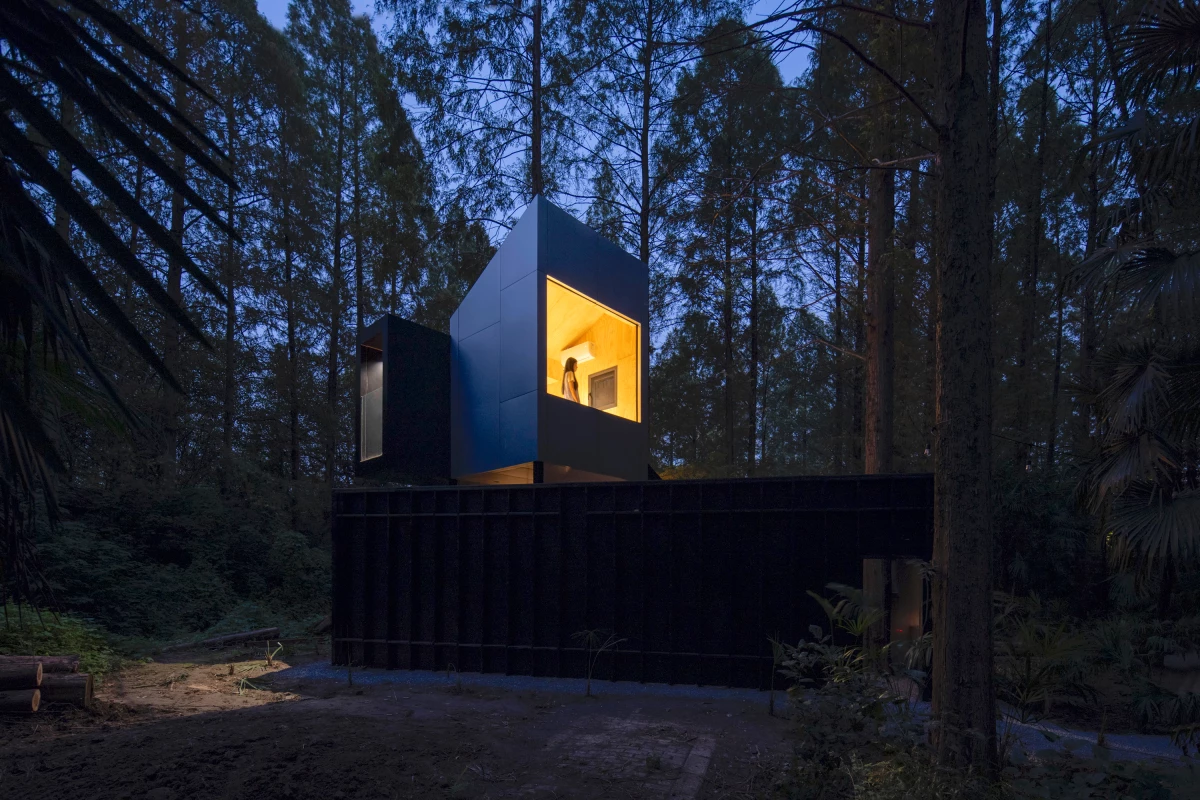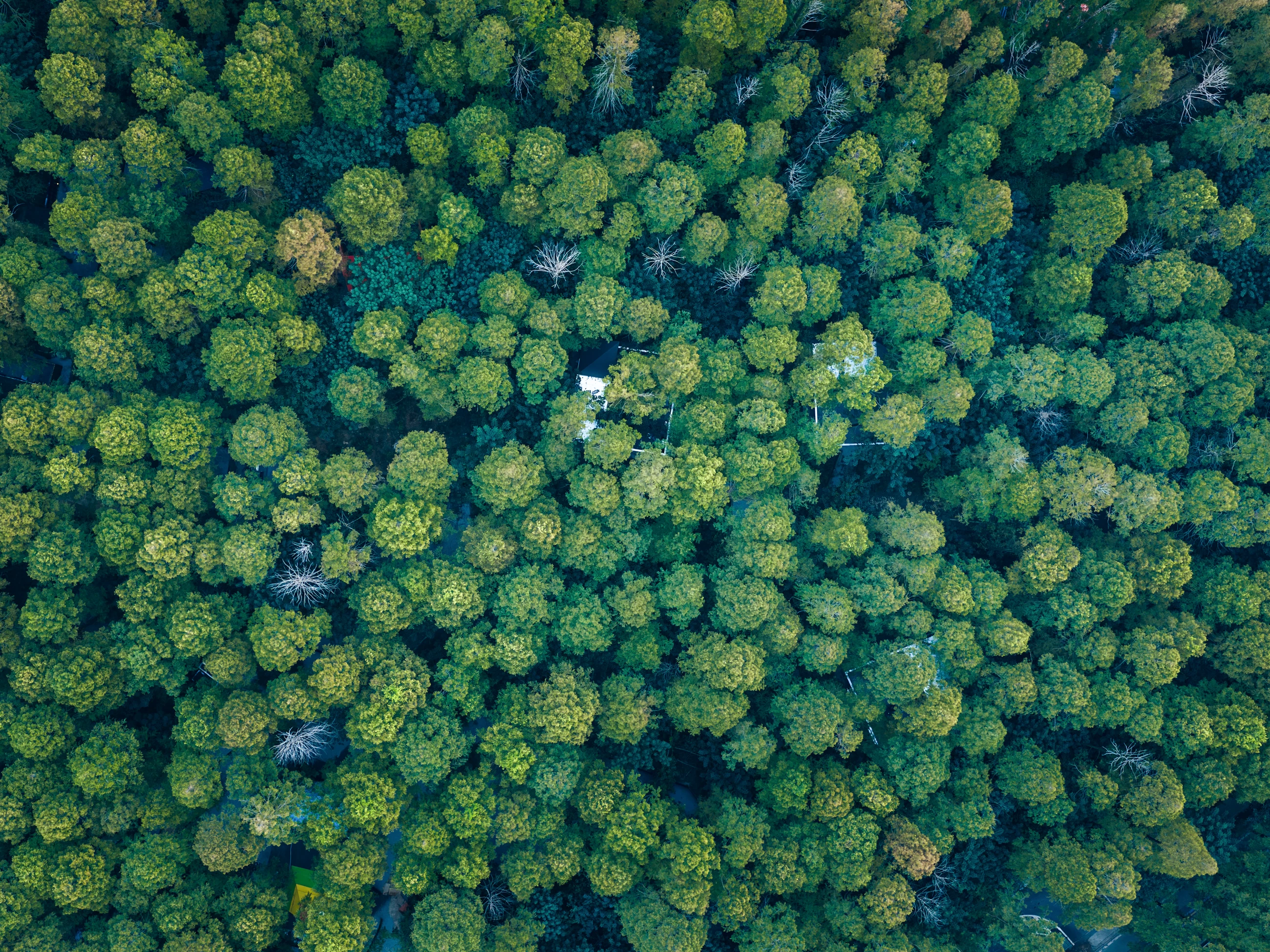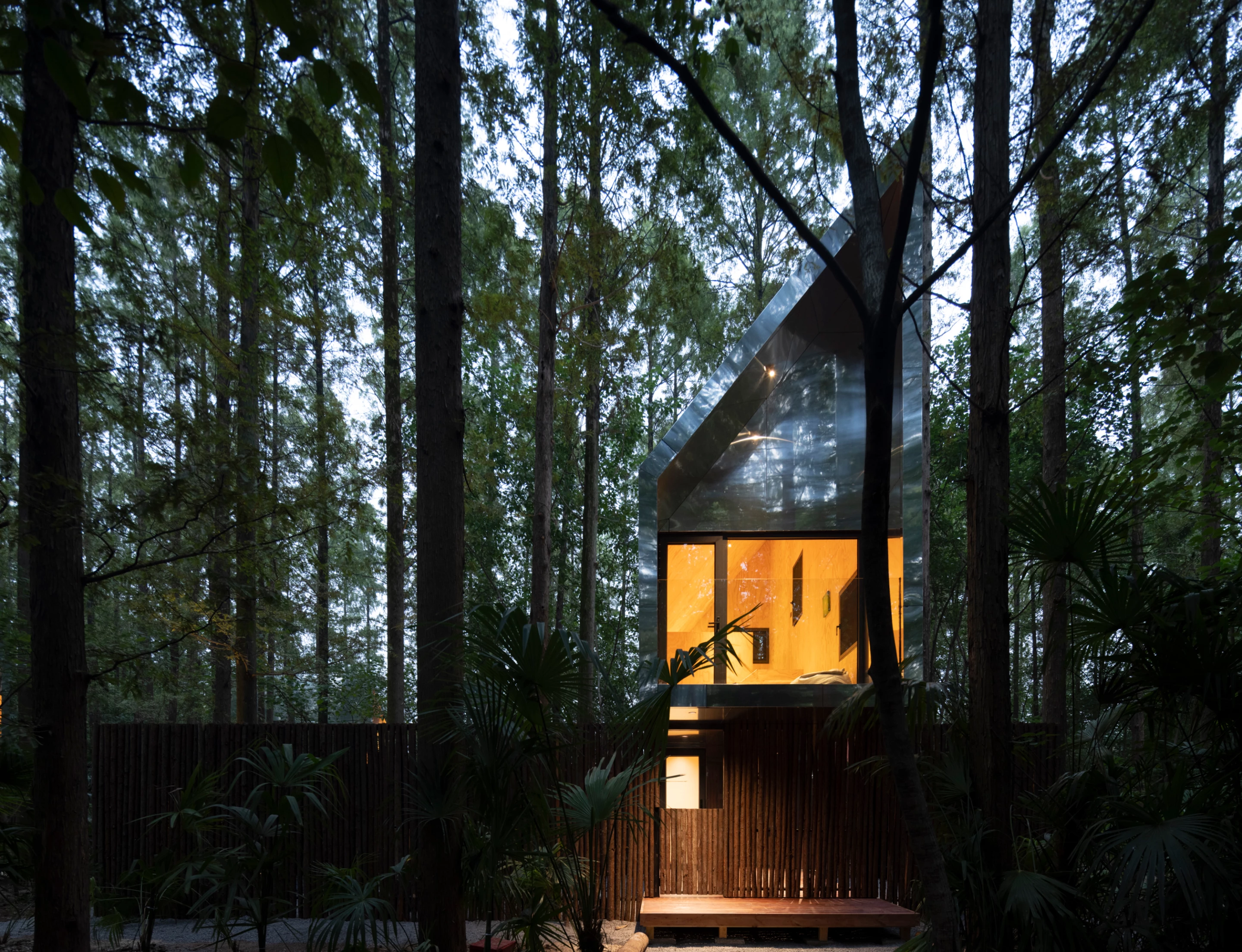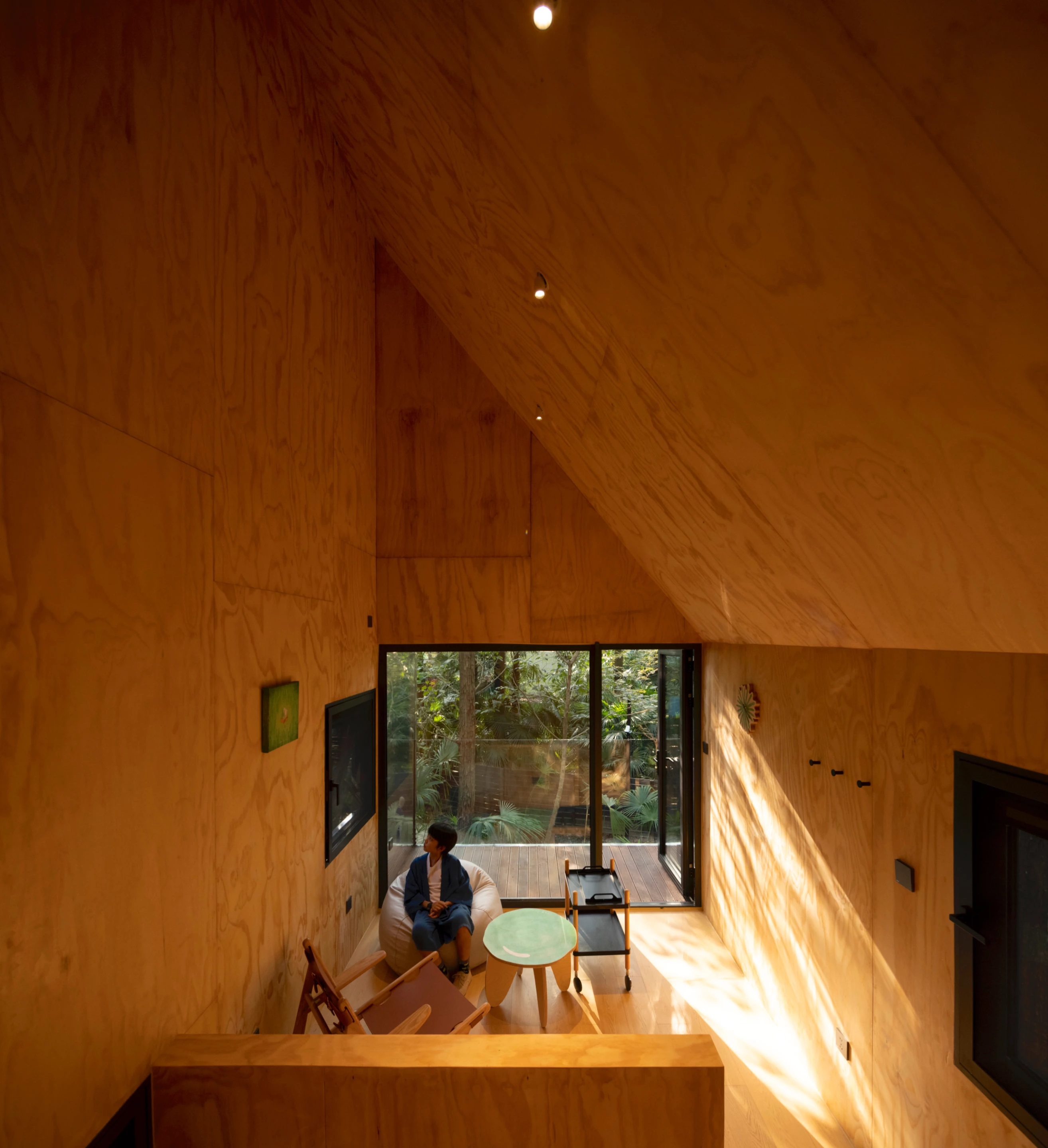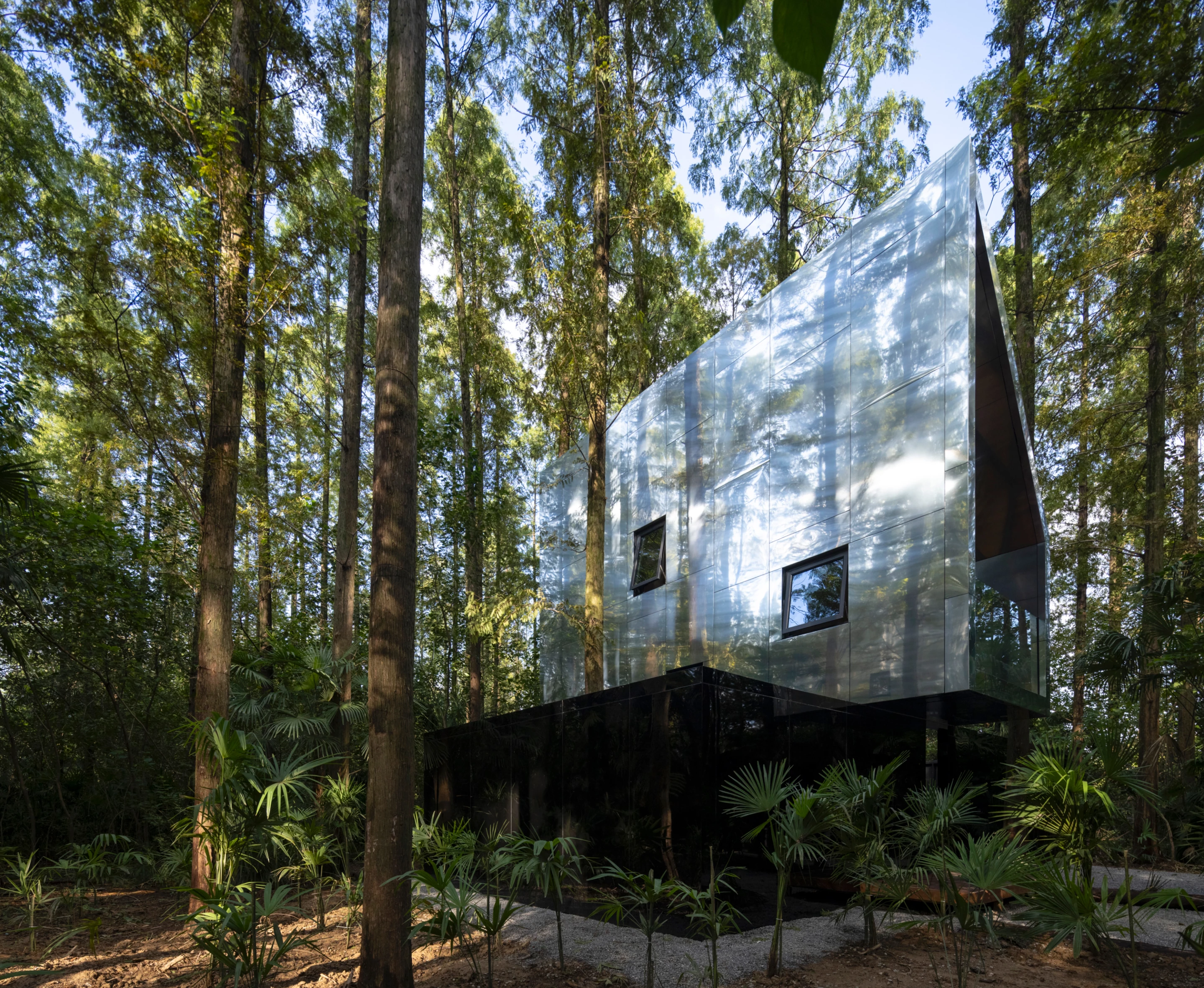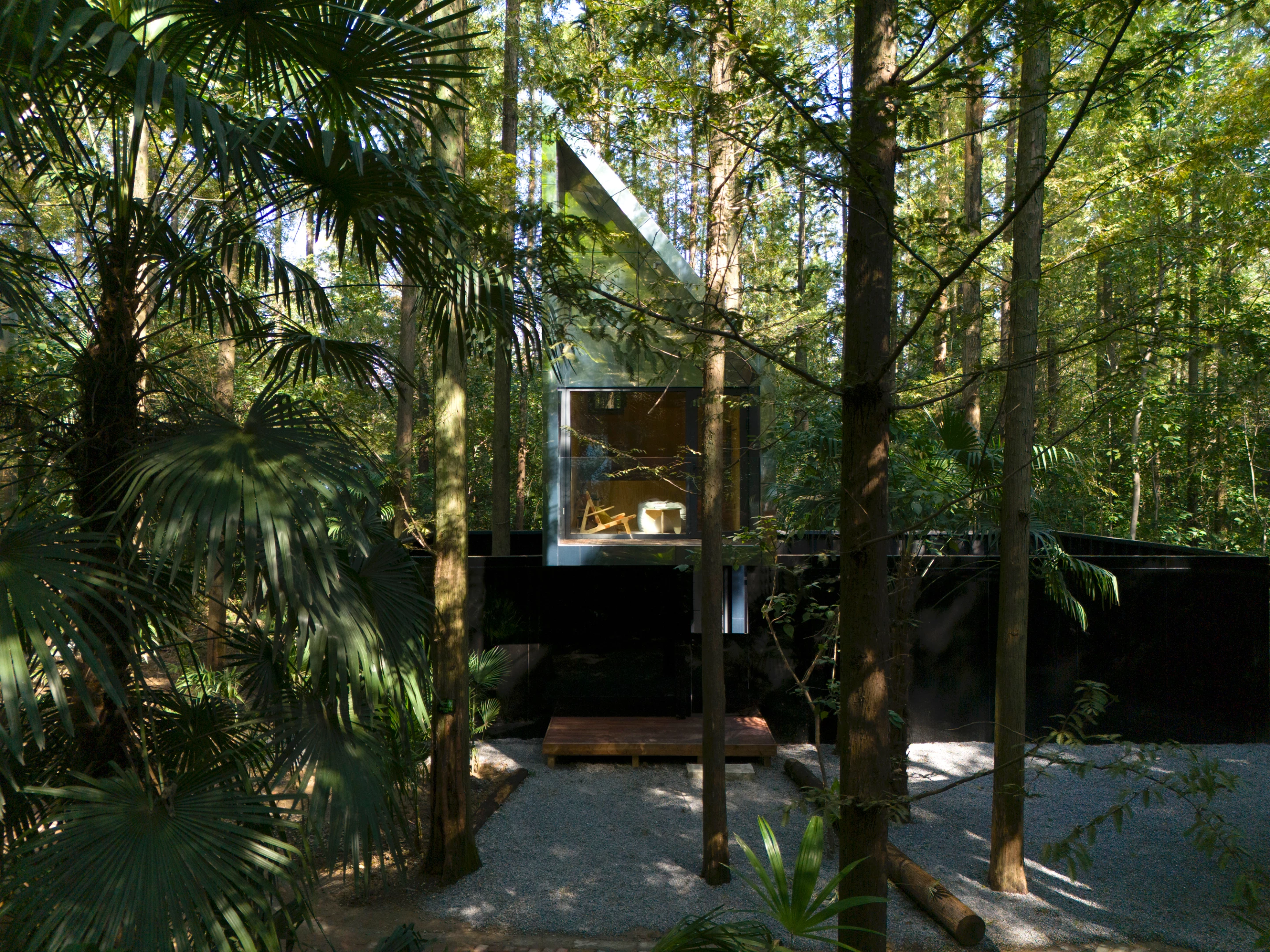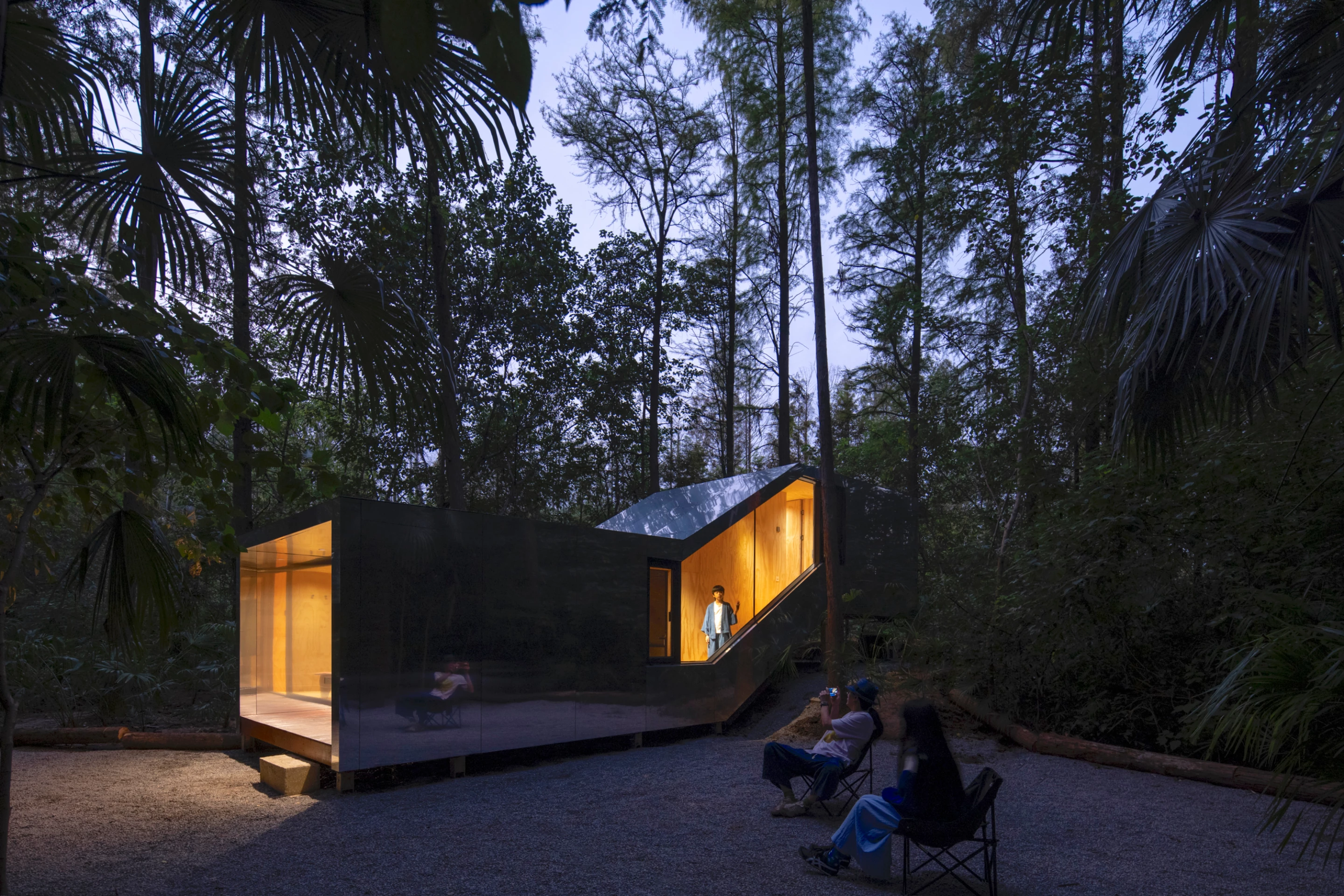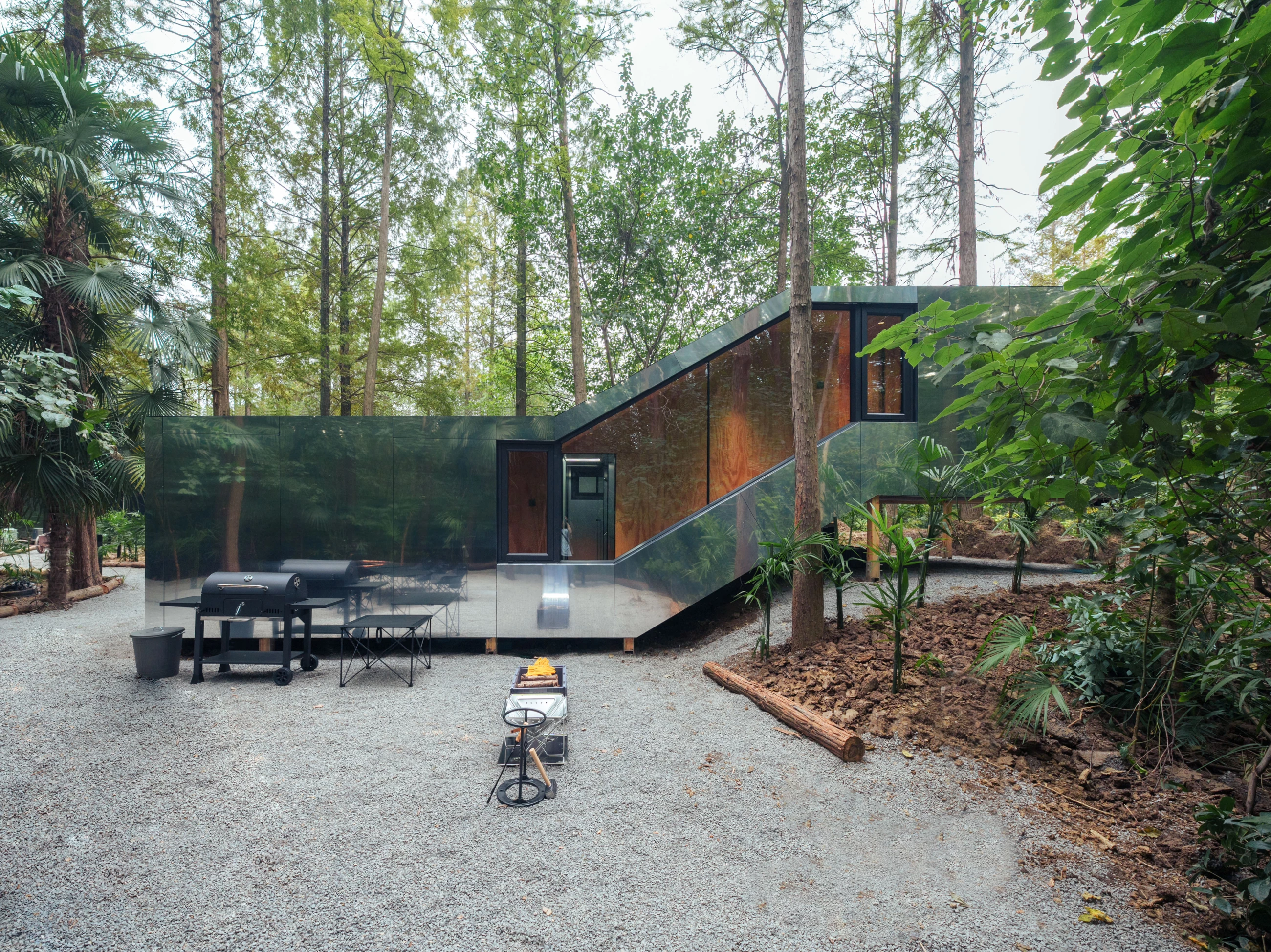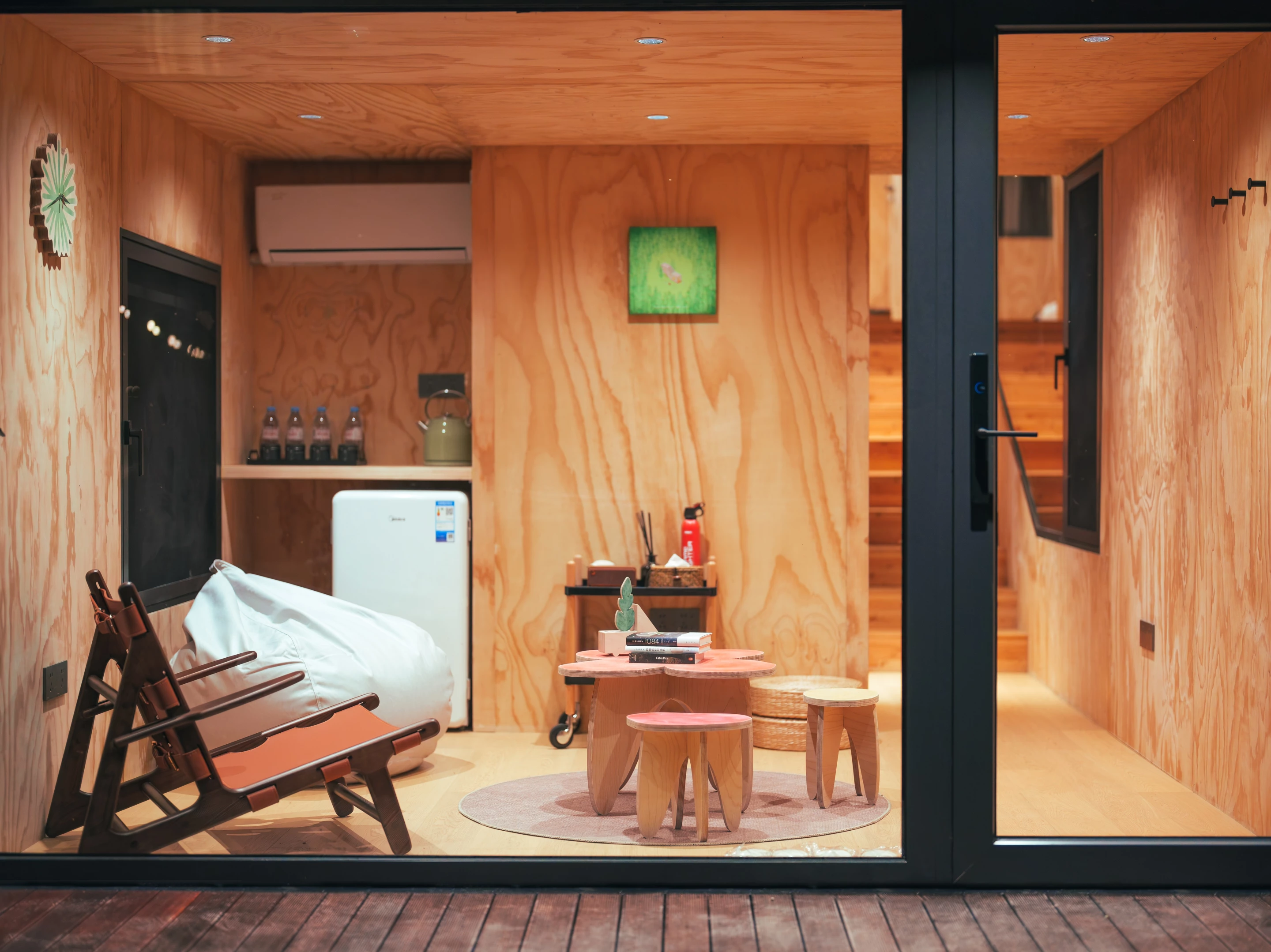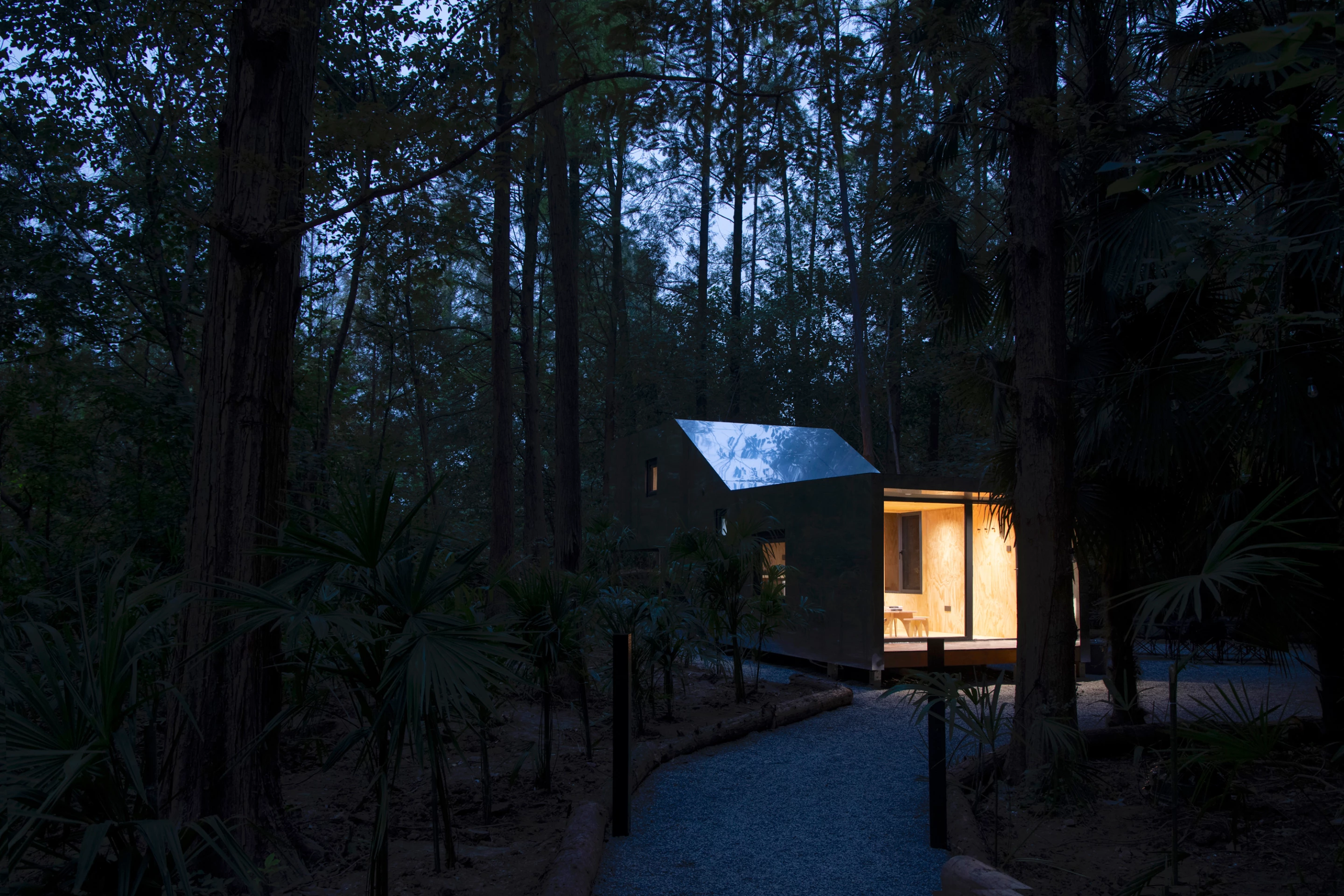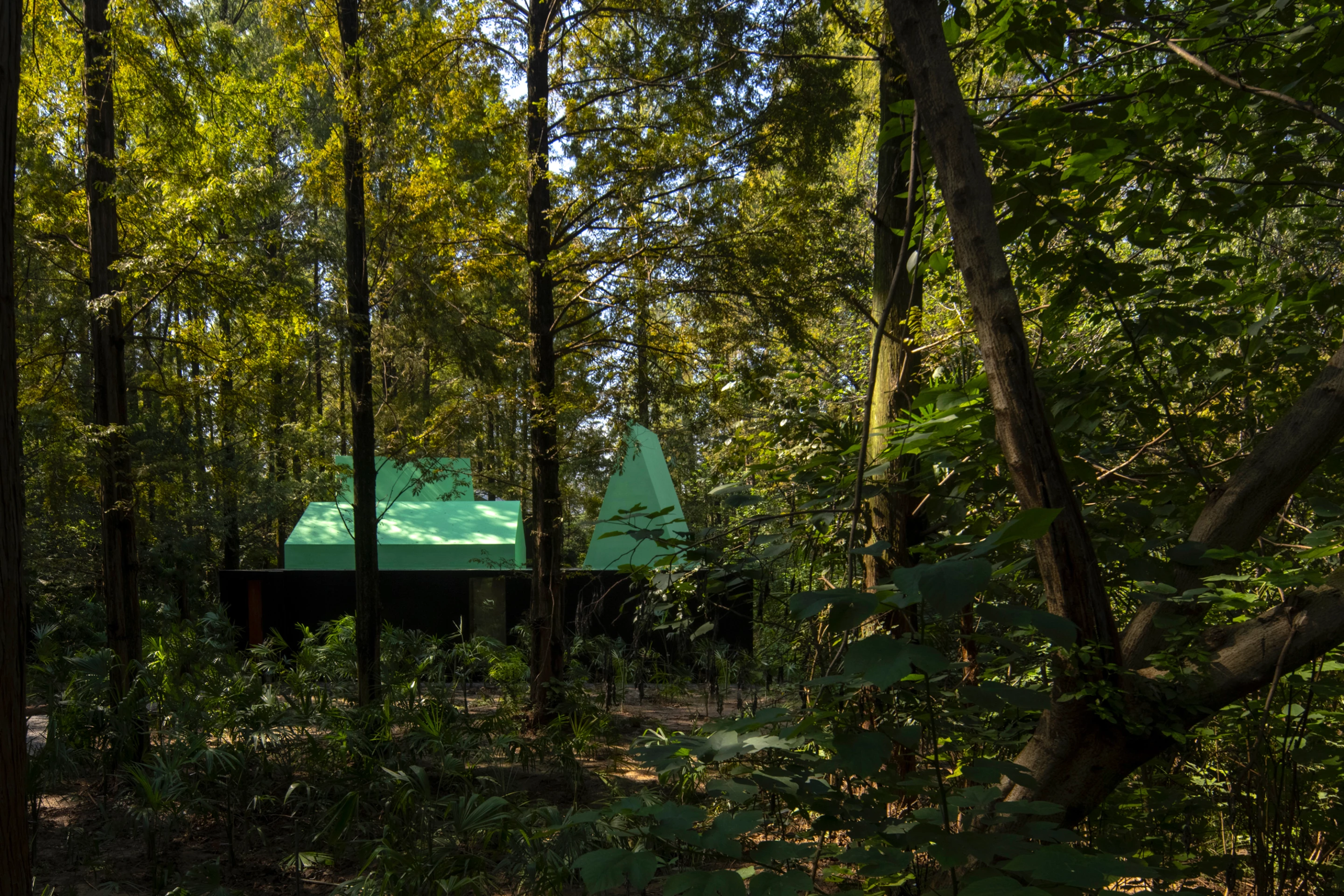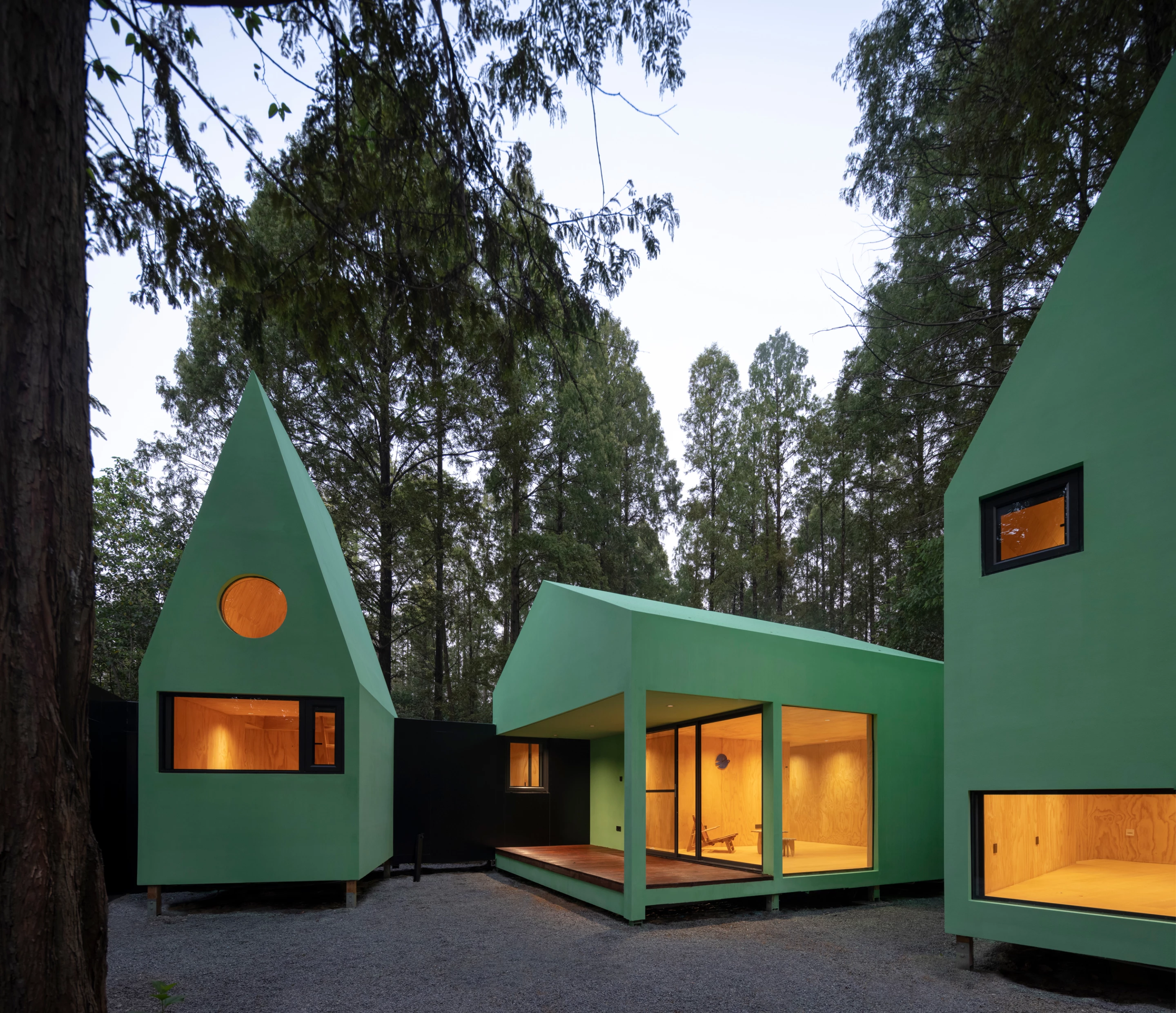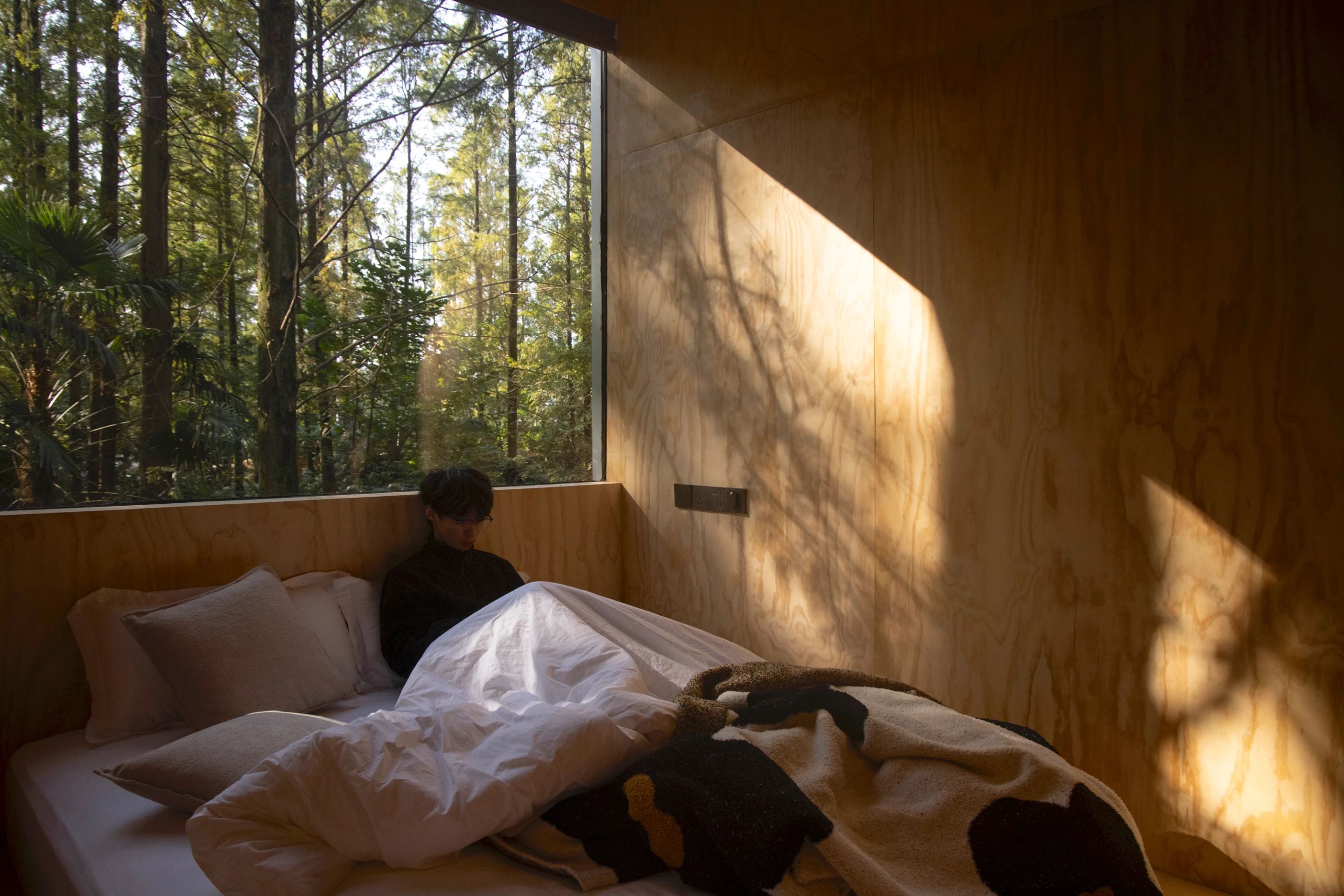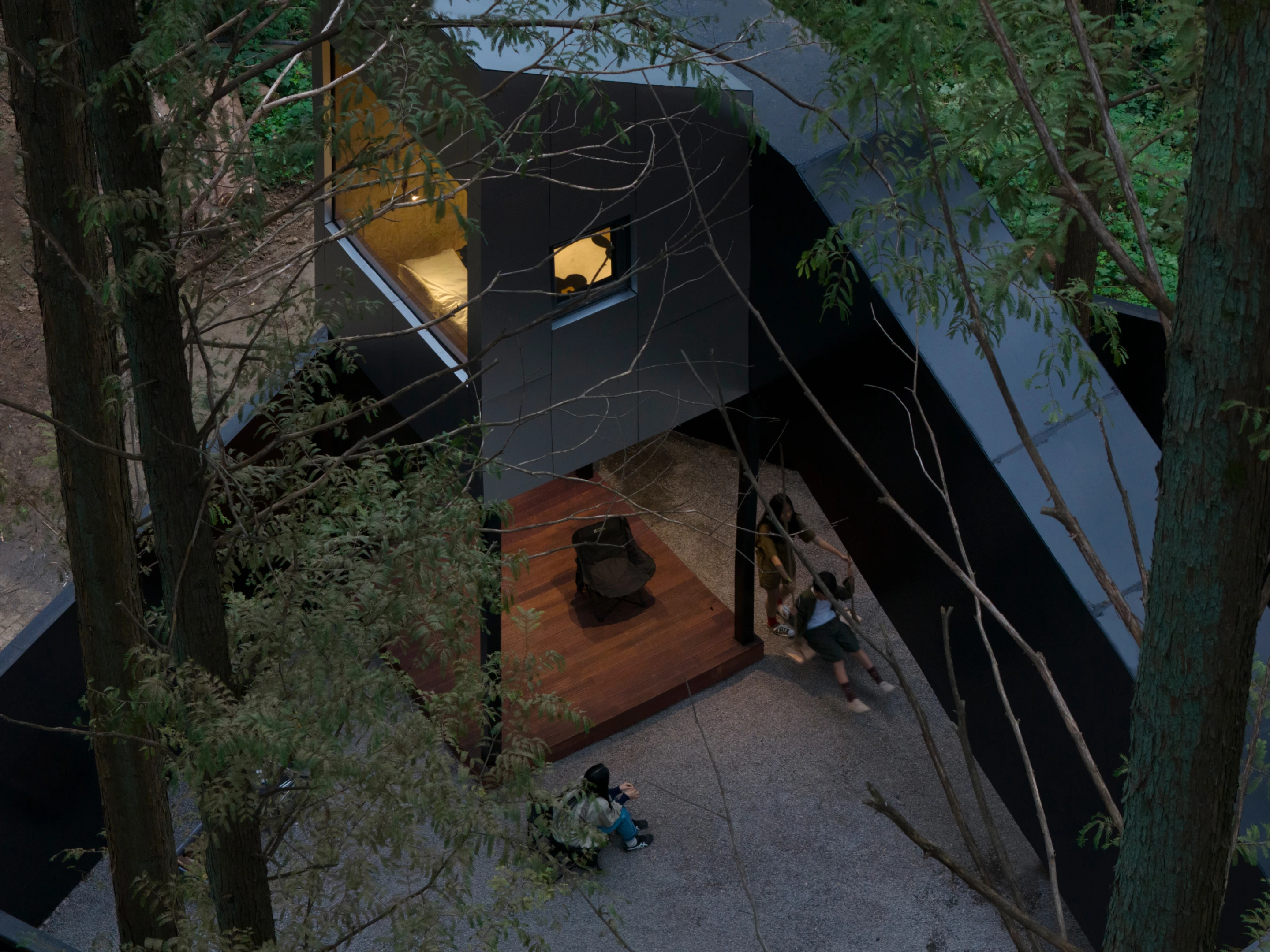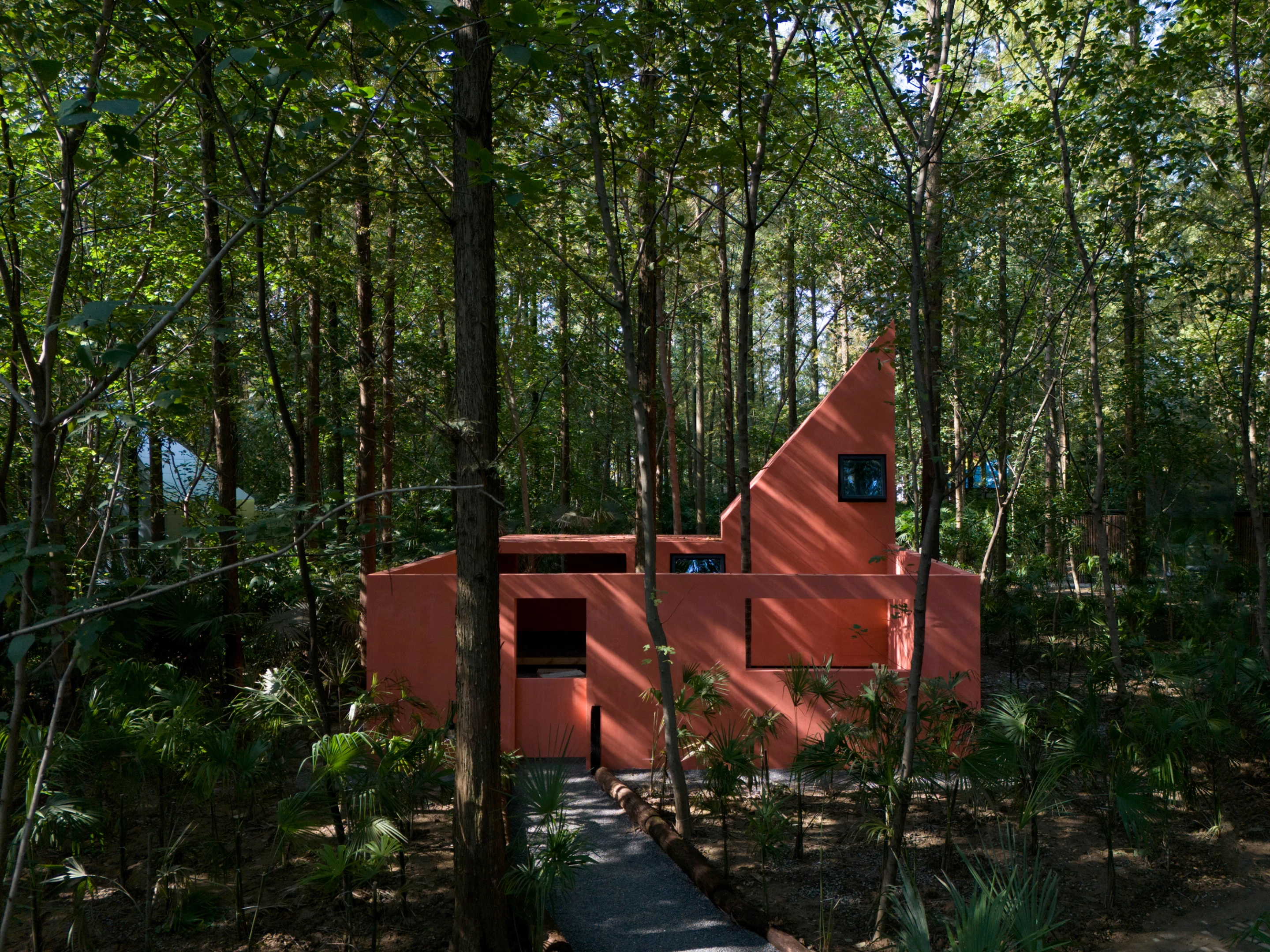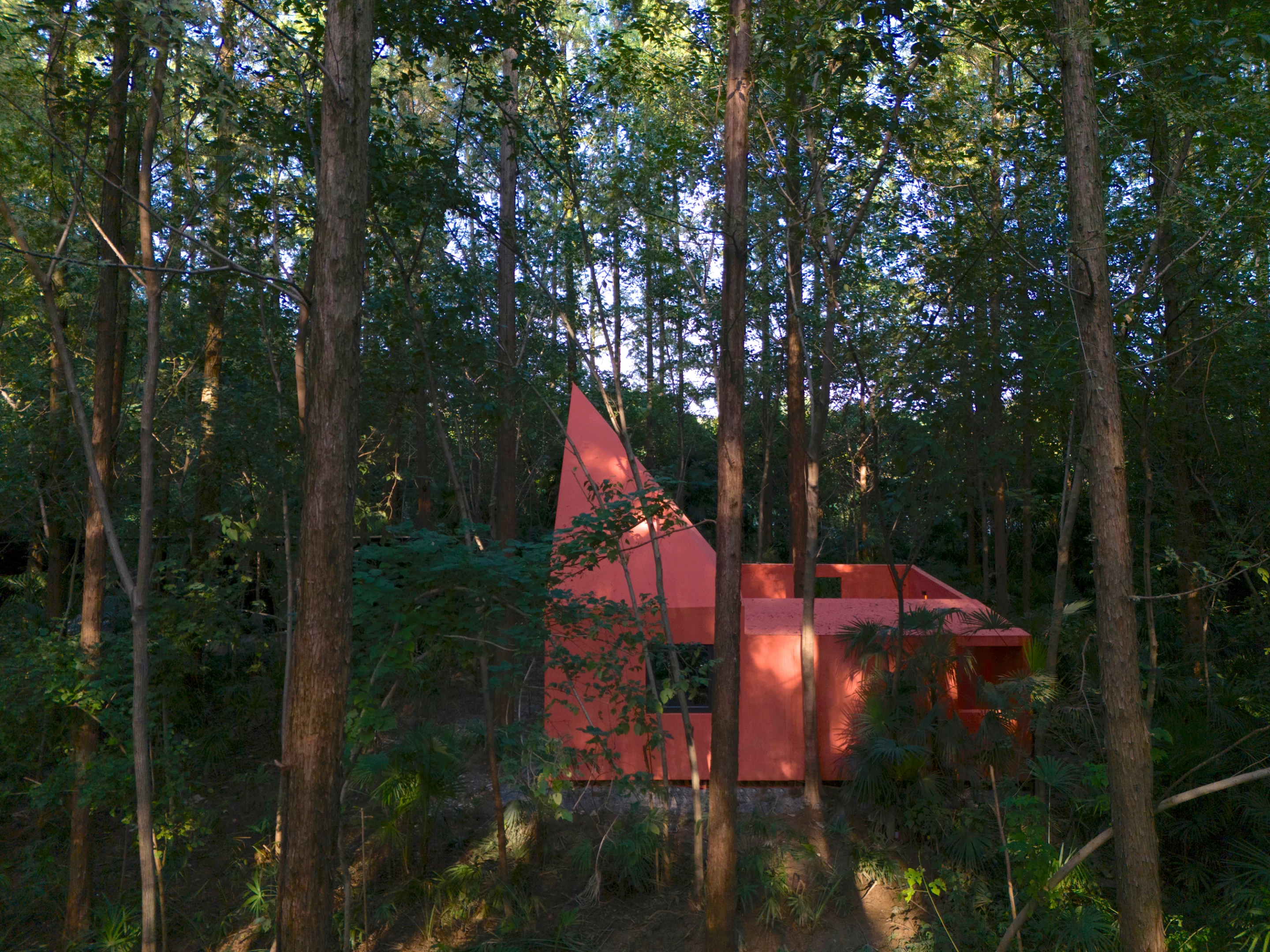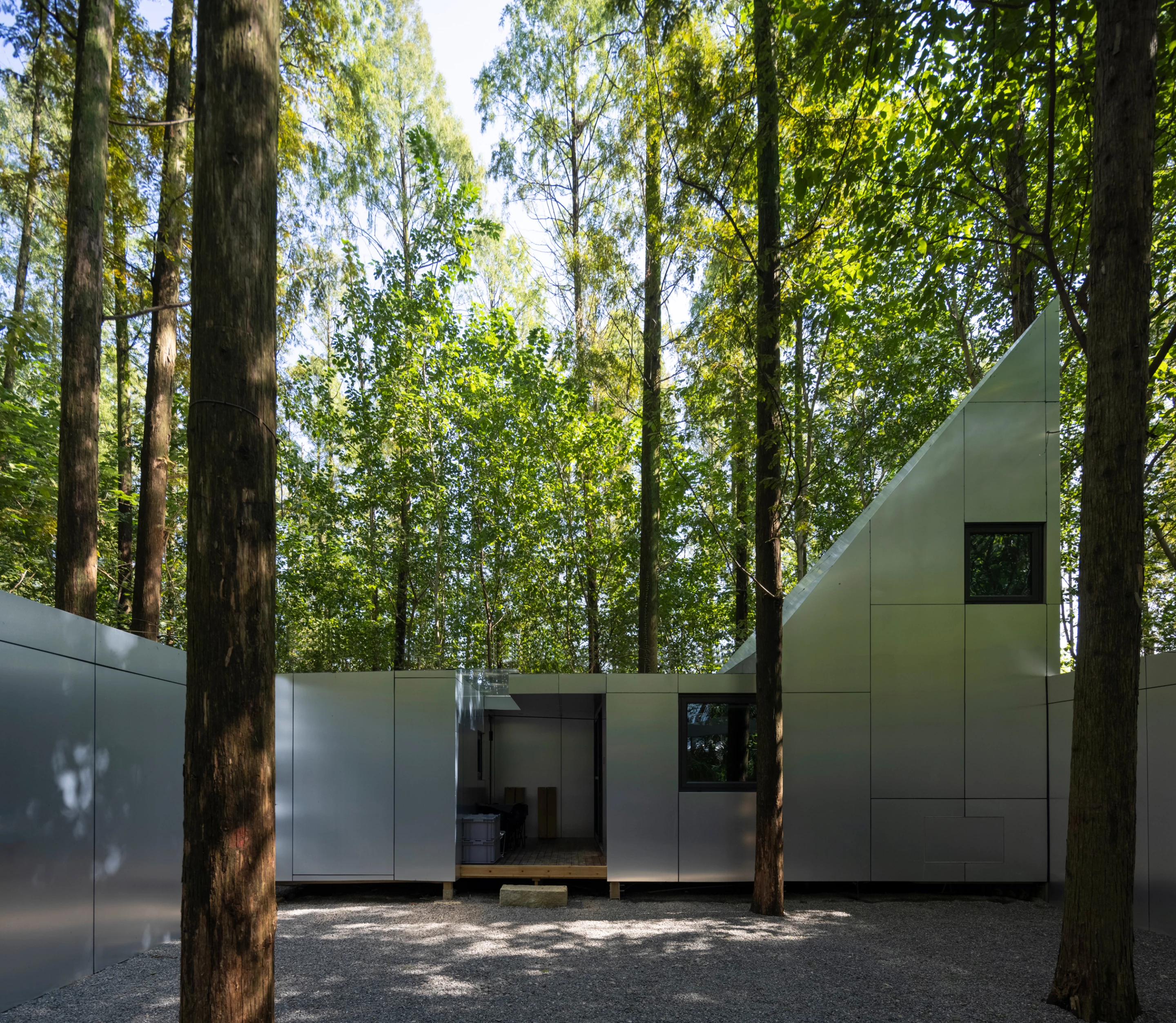Just outside the dense urban fabric of Wuhan, China, a cluster of cabins has appeared amongst the tall dawn redwood forest. Dubbed Secret Camp, the project is part of the Merryda Wiki World retreat, featuring compact dwellings that sit quietly within the serene natural setting.
Rather than beginning with a road, a cleared field, or the usual construction footprint, the team behind the project – Wiki World, United Investment Merryda Hotel Group, and the Advanced Architecture Lab – worked in reverse. The forest came first. Every tree was kept in place, the ground remained untouched.
Each cabin was designed and built to gently hover above the natural landscape. To accomplish this, the team prefabricated the components of the dwellings before putting them all together. Elements were digitally cut, transported to the site, and assembled like an oversized kit.

Slightly raised above the ground, the prefabricated timber structure ensures that the forest floor remains undisturbed. This approach limits environmental damage in a region where development usually means leveling the ground. Furthermore, metal connectors allow the structures to be later dismantled and relocated.
The cabins are intentionally narrow, with just enough space for a cosy lounge area, sleeping quarters, bathroom, and an outdoor terrace to unwind and connect with the surrounding landscape. Guests are encouraged to go barefoot, and experience the sensation of twigs snapping underfoot or the smooth timber on the decks.
Each of the small cabins has its own personality, some playful, others nearly surreal. Instead of traditional themes like "luxury" or "rustic," the designers literally looked upwards to the migratory birds that move through the forest. Their shapes, textures, and colors informed the designs, resulting in structures that resemble metallic time portals, mirrored cocoons, and bright red woodland theaters.
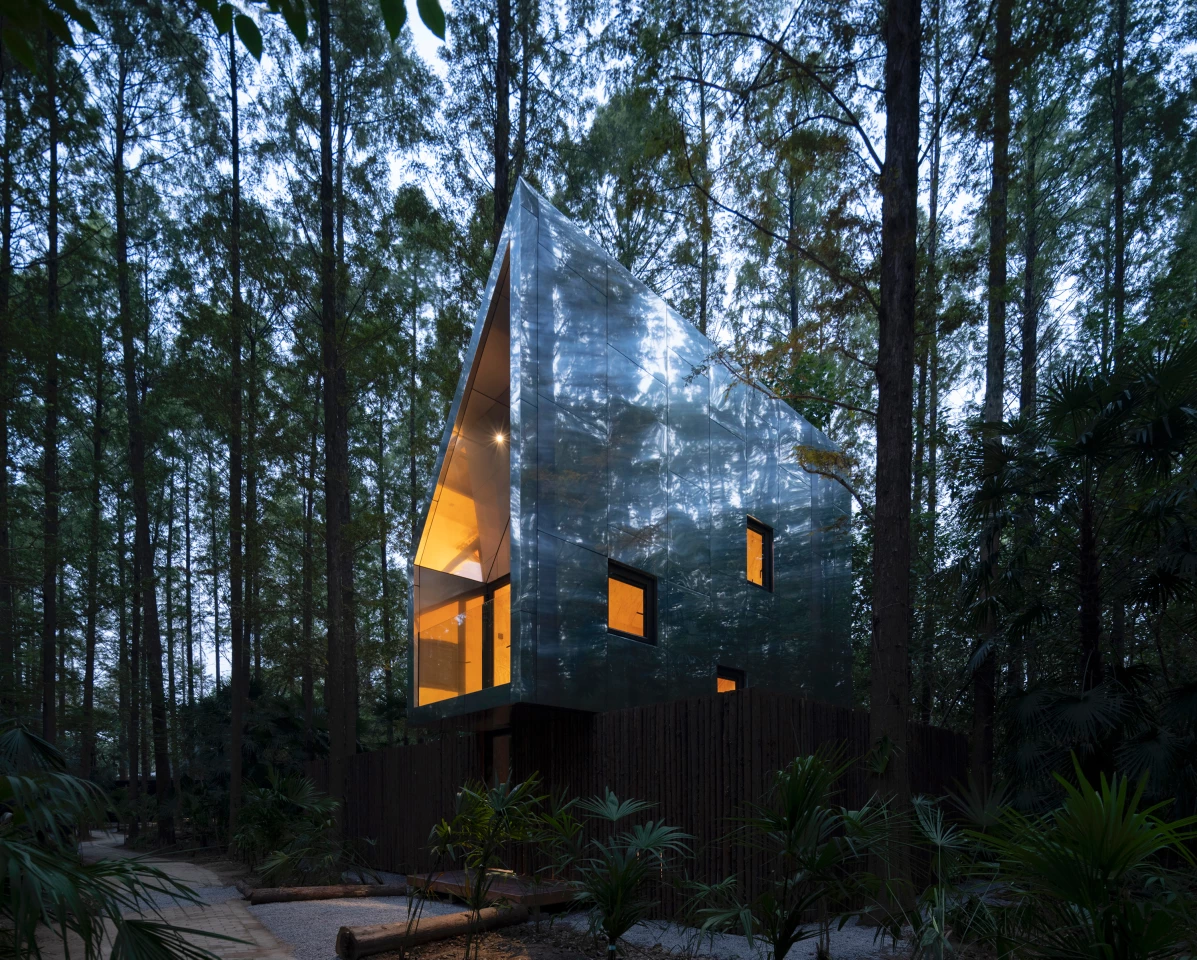
A silver cabin called Time Machine glints at the edge of the woods like a misplaced sci-fi prop, while Nomadic Land sits quietly in a clearing, the architectural equivalent of a sketchbook page. Playground, meanwhile, feels as though it was designed by a child imagining a perfect night under a favorite tree. In doing so, the forest becomes not just a setting but a co-author.
Whether visitors interpret these cabins as whimsical artworks or functioning hotel rooms depends partly on their willingness to suspend the usual expectations of accommodation. None of the structures try to replicate a home or hotel; instead they challenge habitual thinking and merge the living space with nature, which then becomes the real living room.
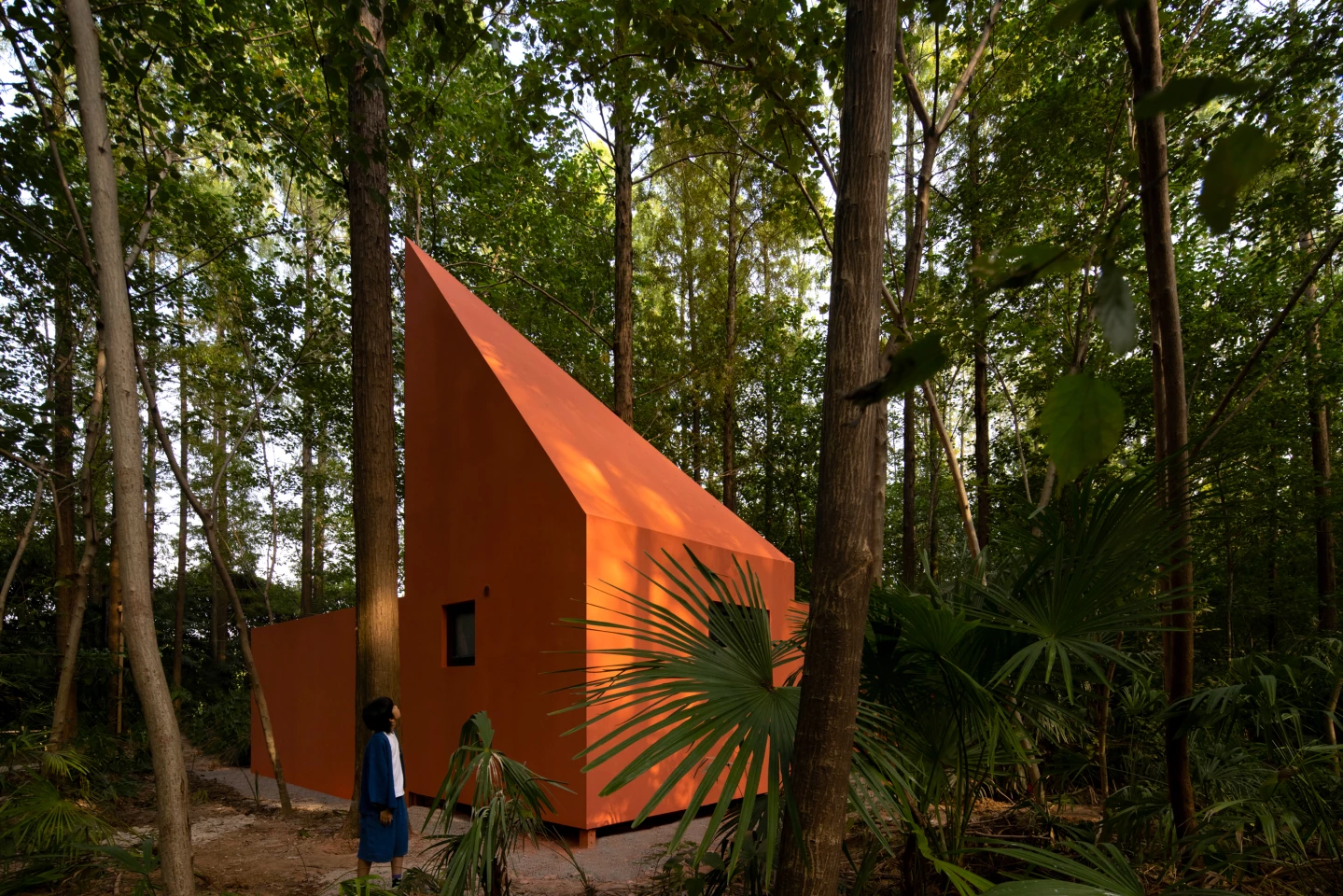
Wandering through the Secret Camp site, guests can stumble upon various outdoor exhibitions and projects, such as an avian evolution exhibit or a birdhouse and timber crafting workshop. Wiki World calls this ongoing experiment a “building school,” and the term fits. Instead of an air-conditioned lecture hall, nature becomes the classroom. Guests, adults and children alike help shape ongoing installations, test ideas about compact living, and encounter architecture not as a finished product but as a conversation.
At present, Merryda Wiki Worlds Secret Camp operates as a small retreat and research facility. Bookings are limited due to the project’s scale, and further expansion or replication will depend on continued testing and user feedback.
Source: Wiki World
